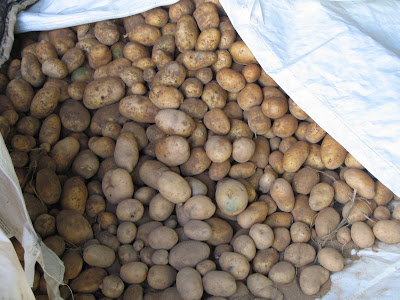Organic Farming Enhances Biodiversity & Natural Pest Control
go.ncsu.edu/readext?466707
en Español / em Português
El inglés es el idioma de control de esta página. En la medida en que haya algún conflicto entre la traducción al inglés y la traducción, el inglés prevalece.
Al hacer clic en el enlace de traducción se activa un servicio de traducción gratuito para convertir la página al español. Al igual que con cualquier traducción por Internet, la conversión no es sensible al contexto y puede que no traduzca el texto en su significado original. NC State Extension no garantiza la exactitud del texto traducido. Por favor, tenga en cuenta que algunas aplicaciones y/o servicios pueden no funcionar como se espera cuando se traducen.
Português
Inglês é o idioma de controle desta página. Na medida que haja algum conflito entre o texto original em Inglês e a tradução, o Inglês prevalece.
Ao clicar no link de tradução, um serviço gratuito de tradução será ativado para converter a página para o Português. Como em qualquer tradução pela internet, a conversão não é sensivel ao contexto e pode não ocorrer a tradução para o significado orginal. O serviço de Extensão da Carolina do Norte (NC State Extension) não garante a exatidão do texto traduzido. Por favor, observe que algumas funções ou serviços podem não funcionar como esperado após a tradução.
English
English is the controlling language of this page. To the extent there is any conflict between the English text and the translation, English controls.
Clicking on the translation link activates a free translation service to convert the page to Spanish. As with any Internet translation, the conversion is not context-sensitive and may not translate the text to its original meaning. NC State Extension does not guarantee the accuracy of the translated text. Please note that some applications and/or services may not function as expected when translated.
Collapse ▲7/9/2022 – This article was printed over twelve years ago, and much more research has been conducted and published to show the benefits of organic agriculture and increasing diversity. Look for those more recent articles, too.
7/1/2010 – I got so excited when I saw this news release from the USDA about one of the studies they’ve funded on organic agriculture, I just had to reprint it here on my blog where I could easily send people to read it. This is EXACTLY what so many of us who work in organic agriculture have been trying to tell people. Now here is a “scientific study” supporting that! Cool. (the fact that I am an alumni from Washington State University and did my Master’s degree on potatoes out there has nothing to do with my enthusiasm for this project :) )

WASHINGTON, July 1, 2010 – A team of researchers from Washington State University and the University of Georgia have found that organic farming increases biodiversity among beneficial, pest-killing predators and pathogens. In potato crops, this led to fewer insect pests and larger potato plants.
“It’s always been a mystery how organic farmers get high yields without using synthetic insecticides,” says co-author Bill Snyder, associate professor of entomology at Washington State University. “Our study suggests that biodiversity conservation may be a key to their success.”
Ecosystems with more total species, and more beneficial species that are relatively evenly distributed, are thought to be healthiest. The use of insecticides harms biodiversity by reducing the number of species and by making some species (often pests) much more common than others. The study, which was funded by USDA’s National Institute of Food and Agriculture (NIFA) and published in the July 1 edition of the journal Nature, shows that organic farming practices lead to many equally-common beneficial species, and that this reduces pest problems.
In potato fields that used conventional control practices (e.g., applications of broad-acting insecticides), usually just one species of beneficial predatory insect or pest-killing pathogen was common. In contrast, in organic fields several beneficial species were about equally common. Experiments showed that groups of evenly-abundant beneficial species, typical of organic farms, were far more effective at killing potato beetle pests. Because natural enemies are usually more even in organic crops of many different kinds, not just potato, these benefits could be widespread.
NIFA funded this project through the National Research Initiative Arthropod and Nematode Biology and Management competitive grants program.
Through federal funding and leadership for research, education and extension programs, NIFA focuses on investing in science and solving critical issues impacting people’s daily lives and the nation’s future. For more information, visit https://www.nifa.usda.gov/.
USDA is an equal opportunity provider, employer, and lender. To file a complaint of discrimination, write: USDA, Director, Office of Civil Rights, 1400 Independence Ave., S.W., Washington, D.C. 20250-9410 or call (800) 795-3272(voice), or (202) 720-6382 (TDD).
This news release is a service of the USDA’s National Institute of Food and Agriculture.
Authored by Jeanine Davis, NC Alternative Crops & Organics Program, Department of Horticultural Science, NC State University.


